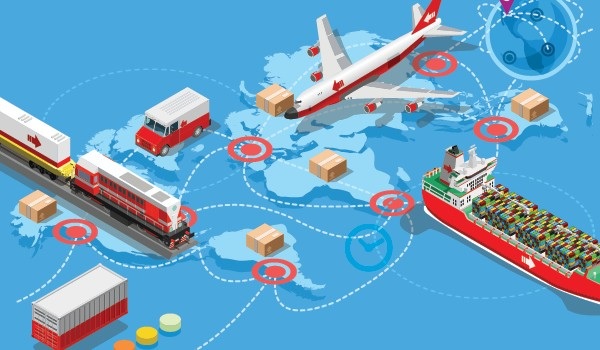
Trade and globalization are complex and interconnected concepts that play a significant role in shaping the modern global economy.
Trade involves the exchange of goods, services, and ideas between different countries. Countries engage in international trade to benefit from each other's strengths and specialties. This concept is rooted in the idea of comparative advantage, where nations focus on producing goods or services in which they are more efficient.
The balance of trade refers to the difference between a country's exports and imports. A trade surplus occurs when a country exports more than it imports, while a trade deficit arises when a country imports more than it exports. Various factors influence trade, including tariffs and trade barriers, which are taxes or restrictions on imports designed to protect domestic industries. Trade agreements, such as NAFTA or the World Trade Organization (WTO), are essential in regulating and facilitating international trade.
The evolution of trade has led to the development of global supply chains. Products often involve components from multiple countries, highlighting the interconnectedness of the global economy.
Globalization is a broader concept encompassing the increasing interconnectedness and interdependence of countries worldwide. It is driven by technological advances, including the internet, telecommunications, and transportation. These advances have made global communication and trade more accessible, facilitating the movement of goods, services, information, and ideas across borders.
Multinational corporations (MNCs) play a crucial role in globalization. These companies operate in multiple countries, contributing to economic integration and the global flow of capital and resources. Globalization has allowed businesses to access markets on a global scale, contributing to economic growth.
Culturally, globalization has led to both homogenization and diversity. There is a spread of global culture, including fashion, music, and consumer preferences, but at the same time, there is an interaction and blending of diverse cultures due to increased connectivity.
Despite its benefits, globalization has faced criticism. Some argue that it exacerbates income inequality between rich and poor nations and leads to job displacement in developed countries as production moves to areas with lower labor costs.
Global institutions, such as the World Trade Organization (WTO), International Monetary Fund (IMF), and World Bank, play a role in regulating and supporting global economic stability.
While globalization has brought about economic growth and increased access to goods and services, it also poses challenges that require careful consideration, such as ensuring fair trade practices, addressing income inequality, and managing the environmental impact associated with increased economic activity.
